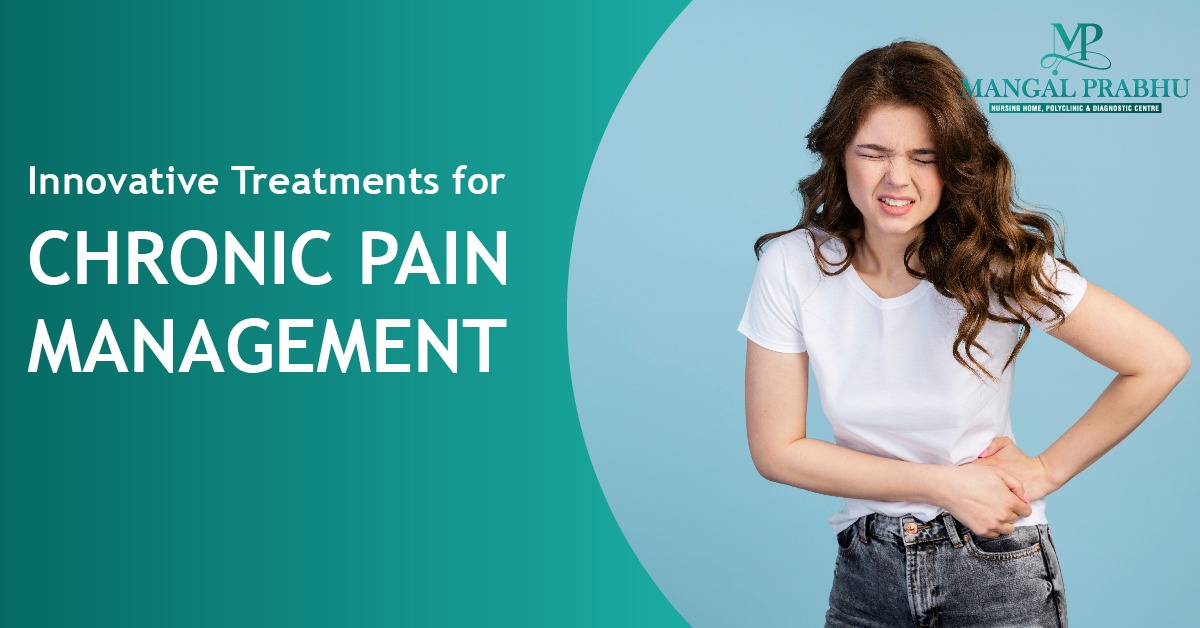
Innovative Treatments for Chronic Pain Management
Pain that lasts for months falls into the chronic pain category. Depending on the underlying cause of the pain, it may or may not be cured. Treatment can, however, relieve your symptoms. A suitable treatment for chronic pain depends on how long you have been suffering from pain, how severe it is, and where it hurts. You can discuss your treatment options with a general physician in Navi Mumbai.
Understanding How Innovative Treatments Work to Manage Your Pain
Fortunately, treatment for chronic pain has evolved a lot in the last few years. There are multiple options available for those who want a permanent cure for the issue. These alternatives to the traditional pain management system, like painkillers, tend to last longer and have little to no side effects, making them a safe option for people of all ages.
From pain shots to Radiofrequency Ablation procedures, there are many options. Let’s explore the most common innovative treatments for chronic pain relief.
Also Read: Common Joints & Muscle Injuries
What Are the Most Common Innovative Treatments for Chronic Pain Relief?
1. Radiofrequency Ablation:
Also called Rhizotomy, radiofrequency ablation is a non-invasive medical procedure that aims to minimize your pain using heat. A specific needle that’s heated is used close to the nerves that send the pain signal to the brain. Once the heated tip zaps the nerve, the pain signal is obstructed and the patient will feel normal. It works for arthritis, hip and joint pain, neuropathy, and other illnesses. The results last 12 months and longer.
2. Pain Shots:
The pain relief medication is injected directly into the area where it hurts. An X-ray and other tests might be performed to identify the problematic area before injecting pain shots. The type of medication used depends on the cause of the pain. Usually, it’s a combination of painkillers that numb the area and steroids, which lower inflammation.
3. Other Meds:
Opioids have long been used to treat chronic pain in patients, but a higher dosage of them can cause adverse effects. It’s a non-invasive treatment. The medication is prescribed to patients with extreme and unbearable pain. While these are quite effective in blocking the pain-inducing signal transmission to the brain, they come with side effects and complications when taken with alcohol and drugs. Addiction, for instance, is a common side effect of Opioids.
The Pros & Cons of Using Innovative Treatments to Manage Chronic Pain
The above-mentioned innovative treatments to control chronic pain have been proven useful for cases with extreme pain, however, these may not always be the suitable choice for every patient. For conditions like arthritis and neuropathy, radiofrequency ablation can be a reliable option, but for moderate pain, aspirin, and ibuprofen are the best. However, remember that each treatment method comes with its share of risks. Before you consider any, discuss your health goals with a specialist.
Conclusion
For some people, chronic pain is an irreversible issue that has no cure. But, with the right treatment, you can manage the pain and make your life better. Visit a private hospital in Navi Mumbai to explore other innovative treatments for pain management.
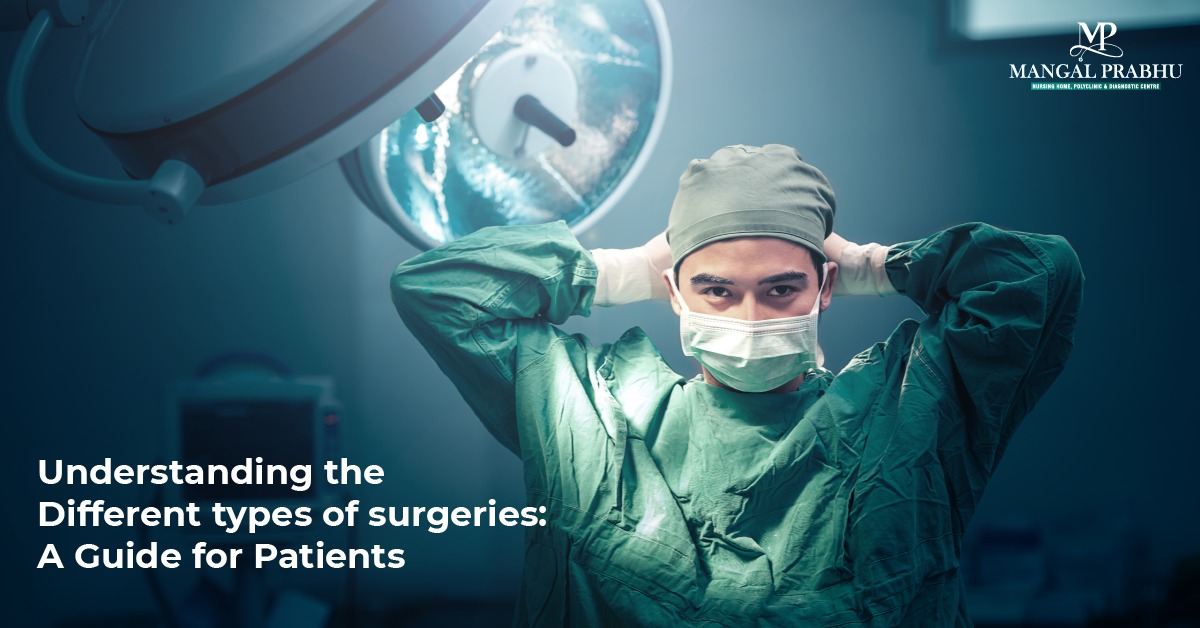
Understanding the Different Types of Surgeries: A Guide for Patients
With every different condition, there are also additional surgeries to eliminate the problem and improve the patient’s body’s functioning. It is classified in several ways, including location in the body, magnitude, and type of conditions such as oncologic, neurologic, orthopedic, etc. However, this guide will help you understand some of the most common surgical operations and know which surgery you need.
The Importance of Different Types of Surgeries
Every surgery has a different significance for a patient and is done for various reasons, which can be the following:
- Repair or remove damaged organs or tissues
- Transplant organ or tissue
- Redirecting blood vessels
- Improve physical appearance
- Eliminate an obstruction
- Implant electronic or mechanical devices
Types of Surgeries
Various types of surgeries vary according to the patient’s condition and complexity. However, here are some of the most common surgeries.
1. General Surgery
It is a surgical operation that concentrates on abdominal contents and the alimentary canal, such as the stomach, esophagus, large intestine, small intestine, appendix, pancreas, thyroid, gland, etc. General surgery also deals with soft tissue trauma, skin, breast, etc. Some examples of general surgery are hernia surgery, endocrine surgery, and appendectomy.
2. Orthopedic Surgery
It is a branch of surgery that deals with musculoskeletal conditions. It effectively treats sports injuries, infections, spine disorders, conventional disorders, etc. bone tumor surgery, joint reconstruction, rheumatoid surgery, and sports surgery are some examples of orthopedic surgery.
3. Cardiothoracic Surgery
It is a surgical procedure that treats internal organs in the thoracic cavity. Cardiothoracic surgery usually treats issues with the lungs, heart, and other mediastinal or pleural structures. Cardiothoracic surgery, cardiac surgery, cardiovascular surgery, and congenital heart surgery are some examples of cardiothoracic surgery.
4. Neurosurgery
It is a field of medicine that deals with the surgical operation of the nervous system. It primarily treats issues related to the spinal cord, brain, and nerves. Traumatology, neuro-oncology, pediatric neurosurgery, spinal surgery, and skull-base surgery are some of the most common examples of neurosurgery.
Procedures for Each Type of Surgery
As every issue requires a different type of surgery, the procedure for each surgical operation also differs.
General Surgery Procedures:
The general surgery procedure includes preparation, tests, recovery, after-surgery pain management, and discharge planning. However, you can get the following common practice of a general surgeon in Navi Mumbai in Mangal Prabhu Hospital.
- Appendectomy
- Gallbladder Removal
- Hernia Repair
Orthopedic Surgery Procedures:
The orthopedic surgeon works on the following diagnosis and procedures for orthopedic surgery.
- Joint Replacement
- Spine Surgery
- Arthroscopy
Cardiothoracic Surgery Procedures:
Cardiac surgeons and cardiologists work well together to treat different cardiological issues. However, a cardiac surgeon may offer some common surgical services and procedures.
- Heart Bypass Surgery
- Heart Valve Replacement
- Lung Surgery
Neurosurgery Procedures:
Neurologists use advanced tools and technologies and offer the following procedures and services to treat neurological conditions.
- Brain Tumor Removal
- Spinal Cord Surgery
- Deep Brain Stimulation
Conclusion
If you are also looking for the best place to do your surgery without any severe complications, you must consider Mangal Prabhu Hospital. It is a prominent multispeciality hospital In Navi Mumbai that offers various treatment plans, surgeries, and the best medication.
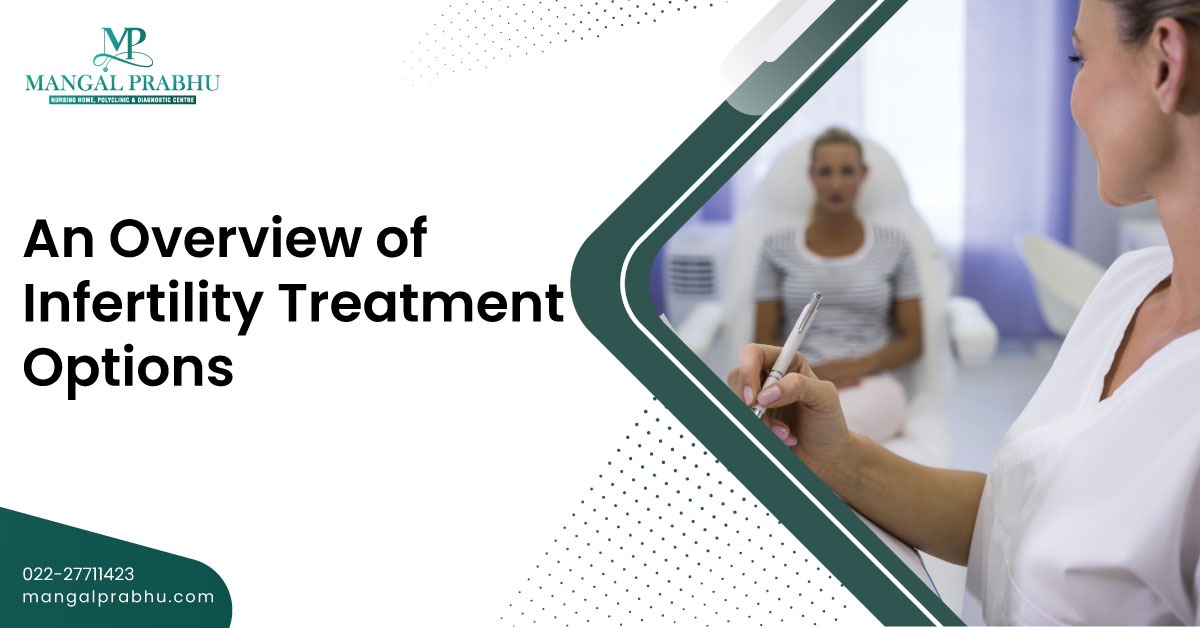
An Overview of Infertility Treatment Options and It’s Effectiveness
Treatment for infertility refers to medical procedures intended to aid single people or married couples in becoming parents. Many causes, including as hormonal imbalances, structural abnormalities, and genetic problems, might contribute to infertility.
A variety of medical and assisted reproductive technologies (ART) that can assist single people or married couples in becoming parents are included in the broad category of infertility treatment. Depending on the underlying reason of infertility, there are a variety of treatments available, including:
Following are the Treatment Options Available for Infertility:
1. Changes in Lifestyle:
In some circumstances, altering one’s lifestyle can assist increase fertility. This can entail losing weight, consuming less alcohol and coffee, giving up smoking, and managing stress.
2. Medication:
Fertility drugs can control ovulation and increase the likelihood of pregnancy. Gonadotropins, aromatase inhibitors, and clomiphene citrate are possible examples of these drugs.
3. Surgery:
In order to treat diseases like endometriosis, fibroids, or obstructed fallopian tubes, surgery may be advised.
Also Read: 10 MOST COMMON PREGNANCY SYMPTOMS AND HOW TO MANAGE THEM
4. Intrauterine Insemination (IUI):
At ovulation, intrauterine insemination entails injecting sperm directly into the uterus. When a couple has a certain form of infertility, this can increase their chances of getting pregnant.
5. Invitro Fertilization (IVF):
The process of in vitro fertilisation, also known as IVF, entails fertilising an egg with sperm in a lab before transporting the resulting embryo to the uterus. For couples experiencing different types of infertility, IVF can be a successful therapy choice.
6. Intracytoplasmic Sperm Injection (ICSI):
In this procedure, a single sperm is injected into an egg’s cytoplasm in a lab setting. For couples with male factor infertility, this may be beneficial.
7. Donor Eggs or Sperm:
In situations where one partner has fertility problems or there are genetic concerns, donor eggs or sperm may be used.
8. Surrogacy:
This may be a possibility if a woman is unable to carry a pregnancy. To do this, a surrogate will be used to carry the pregnancy to term.
The underlying reason of infertility, the type of treatment, the patient’s age, and their state of health are just a few of the variables that might affect how effective an infertility treatment is. Depending on the technique of treatment and the patient, the success rates of infertility treatments can often range from 5% to 60%.
According to a n Infertility Hospital in Navi Mumbai, couples can also successfully conceive with the aid of assisted reproductive technologies (ART), such as intrauterine insemination (IUI), in vitro fertilisation (IVF), and intracytoplasmic sperm injection (ICSI). The success rate of ART varies based on the patient’s age, the quantity of embryos implanted, and the underlying cause of infertility.
Conclusion:
Overall, there are numerous variables that might affect the success rates of infertility treatment, so it’s critical to consult closely with a healthcare professional or fertility specialist to choose the best course of action for your particular situation.
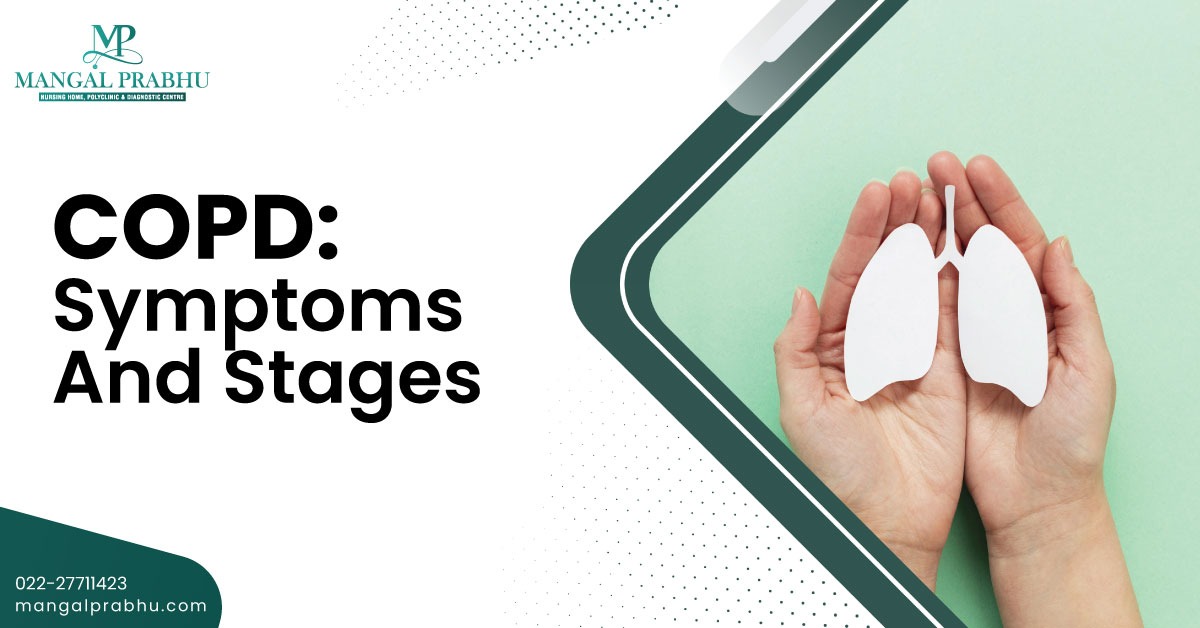
COPD: Symptoms and Stages
A lung condition called chronic obstructive pulmonary disease (COPD) makes it difficult to breathe. As COPD is a progressive illness, it deteriorates over time and can ultimately result in disability or death.
Long-term exposure to irritants like tobacco smoke, air pollution, chemical fumes, or dust is usually what leads to COPD. The most typical signs of COPD include chest tightness, wheezing, chronic coughing, and shortness of breath.
These symptoms may appear gradually over time and be misdiagnosed as normal aging symptoms or the effects of a sedentary lifestyle. In a Multispecialty Hospital in Navi Mumbai, lung function tests, physical exams, medical histories, and imaging tests like X-rays and CT scans are all used to diagnose COPD.
Most typical signs and symptoms include:
- Breathing problems, especially when exercising
- chronic cough that frequently produces mucous
- loud or wheezing breathing
- stiffness or discomfort in the chest
- Weakness and weary
- respiratory diseases that are common
- Unwanted loss of weight
- Emboli in the legs, feet, or ankles
Also Read: 5 Factors To Consider While Choosing A Right Multispecialty Hospital
4 Stages of COPD:
Stage 1 (Mild):
In stage 1 COPD, the forced expiratory volume in one second (FEV1) is equal to or greater than 80% of the expected normal value. The airflow limitation is also minor. At this point, patients may have a persistent cough and more mucus than usual, but they might not feel noticeably short of breath.
Stage 2 (Moderate):
The FEV1 ranges from 50 to 80% of the expected normal value in stage 2 COPD, which is characterized by moderate airflow limitation. Those who are in this stage could feel coughing and mucous production, as well as shortness of breath when exercising.
Stage 3 (Severe):
The FEV1 is between 30 and 50 percent of the expected normal value in stage 3 COPD, which is characterized by significant airflow limitation. At this point, patients may also have other symptoms like weariness, recurrent respiratory infections, and even more severe shortness of breath.
Stage 4 (Very Severe):
The FEV1 is less than 30% of the expected normal value in stage 4 COPD, or less than 50% in respiratory failure. The airflow limitation is quite severe at this stage. People might have very little airflow at this point, along with major constraints on everyday activities, an oxygen dependency, and a lower quality of life.
According to a General Physician in Navi Mumbai, the severity of the condition and the patient’s particular symptoms determine whether a nebulizer should be used for COPD treatment. Nebulizers are generally utilized by those with moderate to severe COPD who have trouble using inhalers or other forms of treatment.
Emphysema
Emphysema is a kind of COPD, and the severity of the condition is normally determined by the outcomes of lung function tests. The Global Initiative for Chronic Obstructive Lung Disease (GOLD) approach, which classifies COPD into four stages based on the severity of airflow limitation, is the most widely used COPD staging system.
The severity of the condition and the patient’s particular symptoms determine whether oxygen therapy is required for COPD. Those with severe COPD, which is often categorized as Stage 3 (Severe) or Stage 4 (Very Severe COPD), are generally advised to use oxygen therapy. Using supplementary oxygen to improve blood oxygen levels and assist in treating symptoms including exhaustion, disorientation, and shortness of breath is known as oxygen therapy.

6 Warning Signs of Breast Cancer
Breast tissue can become cancerous and evolve into breast cancer. Breast cancer develops when the cells there start to divide and grow in an uncontrollable manner, resulting in a tumour or lump. Via the bloodstream or lymphatic system, these aberrant cells can also infiltrate neighbouring tissues or move to other regions of the body.
To increase the likelihood of survival, early detection and treatment of breast cancer are crucial. According to a Cancer Specialist in Navi Mumbai, clinical breast checks, breast MRIs, and other screening procedures can aid in the early detection of breast cancer, when it is most curable.
Depending on the kind and stage of cancer, treatment options for breast cancer may include surgery, radiation therapy, chemotherapy, hormone therapy, or targeted therapy, say the experts in breast cancer treatment in Navi Mumbai.
Also Read: WHAT TO KNOW ABOUT BREAST CANCER?
The following are the 6 types of breast cancer warning signs:
- A bulge or enlargement in the breast or underarm region or close-by alterations in breast size or form
- Nipples that are sensitive or dripping
- Changes in the breast or nipple’s skin tone or texture
- Pain experienced in any breast region
- Breast or nipple swelling or redness
- Palpable Nodule or Lymph Node
Palpable Nodule or Lymph Node
Usually seen in the neck, groyne, or beneath the arms, a palpable nodule or lymph node is a bulge that can be felt or touched on the body. Nodules or lymph nodes that can be felt are frequently the results of an infection, inflammation, or injury, but they can also signal a more serious problem, like cancer.
The lymphatic system, which aids the body in battling illnesses and infections, includes lymph nodes. Little, bean-shaped lymph nodes are filled with immune cells that can assist the body in recognising and combating invading invaders.
The lymph nodes might swell and become palpable when there is an infection or inflammation in the body because they are working to combat the illness. A palpable lymph node, however, may occasionally be an indication of cancer that has progressed from its initial sites, such as breast cancer or melanoma.
It’s crucial to contact your healthcare practitioner for an evaluation to ascertain the cause and, if necessary, proper treatment if you find a palpable nodule or lymph node.
Conclusion:
It’s crucial to remember that not all breast lumps are malignant and that some breast tumours may not even exhibit any symptoms. To find out the cause and, if required, seek treatment, it’s crucial to contact your healthcare physician if you experience any of these warning signs.

CHEMOTHERAPY: TYPES, TREATMENT, AND SIDE EFFECTS!
What Is Chemotherapy?
Chemotherapy is a medical procedure that employs medications to either eliminate or inhibit the growth of cancer cells. It frequently works in tandem with other cancer therapies including surgery or radiation therapy. Chemotherapy medications can be administered orally or intravenously, entering the bloodstream and travelling throughout the body to eradicate cancer cells wherever they may be.
Patients who receive chemotherapy treatments may endure side effects such as hair loss, nausea, vomiting, and exhaustion since these medications can also harm healthy cells. The type and stage of cancer, as well as the patient’s general health and other medical conditions, will determine the precise chemotherapy medications and treatment strategy.
Types of Chemotherapy
Chemotherapy medications come in a wide variety of forms and are categorized in various ways. Below are some of the most typical chemotherapy regimens:
- Alkylating Agents: These medications function by introducing an alkyl group to DNA, which prevents cancer cells from replicating. Cyclophosphamide, chlorambucil, and busulfan are a few examples.
- Antimetabolites: These medications imitate the components of DNA and RNA, disrupting cancer cells’ ability to operate normally. Methotrexate, 5-fluorouracil, and are a few examples.
- Anthracyclines: These medications function by obstructing the activity of an enzyme required for the replication of cancer cells. Doxorubicin and epirubicin are two examples.
- Topoisomerase Inhibitors: These medications prevent the action of topoisomerases, which are essential for DNA replication. Irinotecan and etoposide are two examples.
- Mitotic Inhibitors: These medications act by preventing cell division. Paclitaxel and docetaxel are two examples.
- Platinum Compounds: By attaching to DNA, these medications stop cancer cells from proliferating. Cisplatin and carboplatin are two examples.
- Monoclonal Antibodies: These medicines, which are referred to as targeted therapies, specifically target the proteins on the outer layer of cancer cells. Trastuzumab and rituximab are two examples.
Also Read: What You Need To Know Chemotherapy?
The Stage Of Cancer At Which Chemotherapy Is Used
Depending on the type of cancer and its stage of development, chemotherapy may be administered at various stages of cancer treatment. The Chemotherapy centre in Navi Mumbai states that in order to make a tumour smaller and easier to remove, chemotherapy may occasionally be administered prior to surgery.
Neoadjuvant chemotherapy denotes this. In some instances, chemotherapy may be used following surgery to eradicate any cancer cells that remained and lower the likelihood of the disease returning. The term for this is adjuvant chemotherapy.
For some cancer types, especially those that have spread past their original site, chemotherapy can also be employed as the main treatment. Chemotherapy is used in these situations to kill cancer cells throughout the body and inhibit or stop the spread of the disease.
An oncologist, who focuses on treating cancer, is often part of the healthcare team that decides whether to use chemotherapy and when to administer it. The particular course of treatment will depend on the type and stage of cancer, the patient’s general health, and any other medical disorders.
Treatment Methods Post Chemotherapy
According to an Oncologist in Navi Mumbai, the subsequent course of treatment following chemotherapy is determined by the type of cancer being treated and the patient’s response to the chemotherapy. Chemotherapy may be able to totally eradicate cancer in rare situations, leaving the patient free from further treatment. In some situations, extra therapy could be required to guarantee that every cancer cell is eliminated and stop the disease from coming back. Following chemotherapy, these typical next steps are listed:
- Surgery: To remove the tumour, if the cancer is limited and has not progressed to other body parts, surgery may be advised.
- Radiation Therapy: This involves killing cancer cells with high-energy radiation. It can be used either on its own or in conjunction with chemotherapy or surgery.
- Immunotherapy: Immunotherapy is administering medications that support the body’s immune system in identifying and eliminating cancer cells.
- Targeted Therapy: When used to treat certain types of cancer, targeted therapy includes administering medications that specifically target chemicals or proteins in cancer cells.
- Hormone Therapy: Hormone treatment is used to treat tumours including breast and prostate cancer that are susceptible to hormones. Hormone treatment stops the hormones that promote the growth of cancer cells from being produced or acting, which is how it works.
The type of cancer, the stage of the disease, the patient’s general condition, and other considerations will determine which treatment should be used following chemotherapy. Together, you and your oncologist will create a treatment strategy that is personalised for your unique requirements.

What is Hernia in Women?
What is Hernia and How Does It Affect Women?
A hernia is a disorder that develops when an organ or piece of tissue pushes through a tear or weak area in the surrounding muscle or tissue. This may occur in the abdomen, groin, or diaphragm, among other body regions. Hernias can appear unexpectedly or develop gradually over time.
According to Hernia Treatment Hospital in Navi Mumbai, women can get hernias, however, they do so less commonly than men do. The following are some typical hernias that might affect women:
Common Types of Hernia in Women
- Inguinal Hernias: More frequently seen in men, these hernias develop in the groin region. Yet women can also get inguinal hernias, especially if they have a history of hard lifting or many pregnancies.
- Umbilical Hernias: These hernias are more frequent in women than in males, particularly in those who have had several pregnancies or who are obese. They develop close to the belly button.
- Incisional Hernias: Hernias at the site of previous abdominal surgery, known as “incisional hernias,” might weaken the abdominal wall and increase the risk of hernias.
- Hiatal Hernias: When a portion of the stomach pushes through the diaphragm and into the chest cavity, a hernia occurs. As they age, women are more likely to develop hiatal hernias, which can be accompanied by reflux symptoms.
Also Read: DO I NEED SURGERY FOR HERNIA?
What are the Causes of Hernia in Women?
Hernias happen when a weak area in the surrounding muscle or tissue allows an internal organ or tissue to protrude through. Although hernias are typically associated with men, they can also affect women. Although the causes of hernias in women might vary, the following characteristics are frequently linked to an increased chance of getting one:
1. Childbirth During Pregnancy:
The stress on the abdominal muscles during these processes might weaken the abdominal wall, increasing the risk of a hernia.
2. Obesity:
Having a large waistline or being obese can place additional tension on the abdominal muscles and increase the risk of a hernia.
3. Heavy Lifting:
Frequently lifting weights or objects that are heavy might cause the abdominal muscles to get strained and cause a hernia.
4. Coughing or Sneezing Repeatedly:
Prolonged coughing or sneezing can impose stress on the abdominal muscles, causing them to deteriorate over time.
5. Past Operations:
According to a General Surgeon in Navi Mumbai, women who have had abdominal surgery in the past may be more susceptible to hernias.
6. Genetics:
Due to a family history of the illness, certain women may be predisposed genetically to have hernias.
What is Abdominal Wall Weakness in Women?
Despite being similarly linked, abdominal wall weakness in women is not the same as a hernia. When the muscles and tissues that make up the abdominal wall are weak or injured, it is easier for organs and other tissues to push through the weak spot and produce a hernia.
This condition is referred to as abdominal wall weakness. Although poor abdominal wall tissue can result in the development of a hernia, this is not always the case. But, if unchecked, abdominal wall weakness can eventually raise the chance of developing a hernia. Both disorders can cause pain, discomfort, or an abdominal bulge as symptoms.
What is Diastasis Recti?
The two parts of the rectus abdominis muscle, also referred to as the “six-pack” muscle, split along the Linea alba, the connective tissue that runs along the middle of the abdomen, in a condition known as diastasis recti. Pregnancy, excessive weight gain, or abdominal surgery are all risk factors for this separation. Diastasis Recti is not the same as hernia though it is possible to have both a hernia and diastasis recti, and in certain situations, both diseases may need to be treated surgically.
Conclusion
Women can develop hernias just as frequently as males. Femoral hernias, for example, maybe more common in women than in men because of the differences in their anatomical structures. Due to the stress imposed on the abdominal muscles during pregnancy and after childbirth, women may also be more susceptible to developing hernias.
Women should be aware of the symptoms and signs of a hernia, which include pain, discomfort, and an obvious bulge in the affected area. Early medical intervention can stop the hernia from getting worse and potentially leading to catastrophic problems.
Women’s hernias can be treated surgically or with supporting clothing or belts that can help control discomfort. In general, women can lower their risk of getting hernias and maintain their health and well-being by being aware of the risk factors and taking preventative actions.
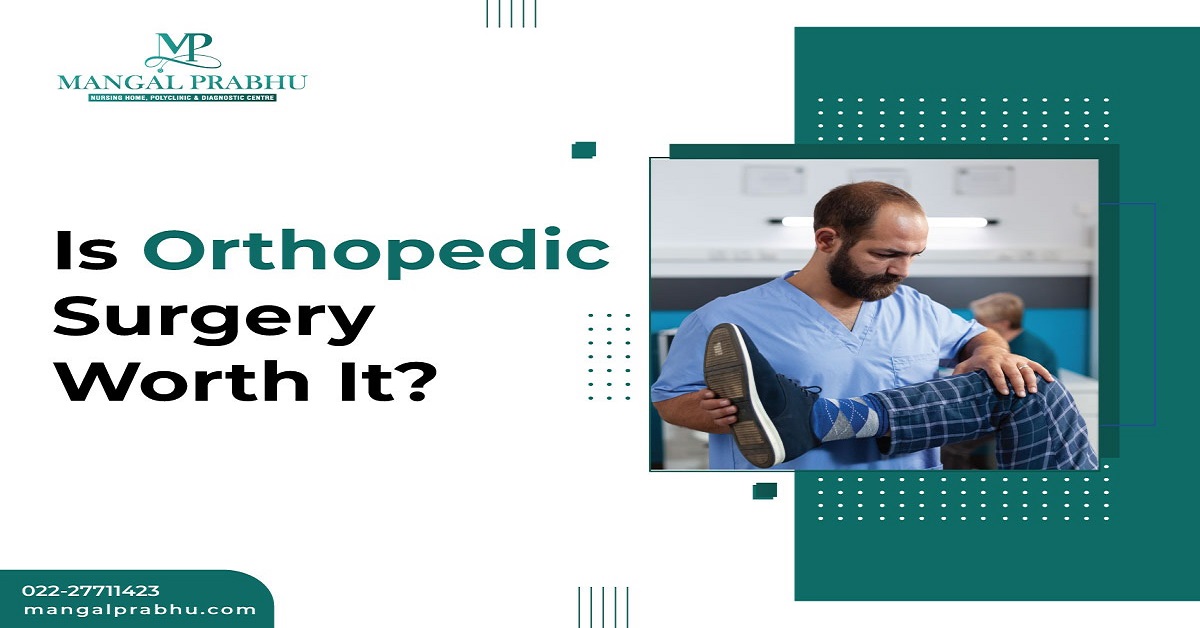
Is Orthopedic Surgery Worth it?
What Is Orthopedic Surgery?
Orthopedic is the area of medicine that focuses on the evaluation, treatment, and preventive measures of issues and injuries of the musculoskeletal system, which includes the bones, joints, muscles, tendons, and ligaments that provide support, stability, and movement to the body. Orthopedic conditions can vary from minor injuries, such as sprains and strains, to more severe conditions, such as arthritis, osteoporosis, and degenerative disc disease.
Types of Orthopedic Treatment:
Orthopedic experts, commonly known as orthopedic surgeons are medical doctors who specialize in the diagnosis and treatment of these conditions. They are trained to administer a variety of techniques to treat orthopedic conditions, including non-surgical and surgical approaches. Non-surgical treatments include physical therapy, medications, and orthotic tools, such as braces or casts, that help support and immobilize affected areas in the body. The surgical treatments include procedures such as joint replacement, spinal fusion, and arthroscopic surgery.
According to an Orthopedic Hospital in Navi Mumbai, these procedures are typically used for more severe conditions that do not respond effectively to non-surgical methods. Let us understand if this type of surgery is necessary and if it is worth it.
The decision of whether or not orthopedic surgery is worth it depends on various factors such as the specific condition that is being treated, the severity level of the condition, the patient’s overall health condition and lifestyle, and the potential risks and benefits of the surgery.
Advantages of Orthopedic Surgery:
In many cases, an orthopedic surgery can be highly effective in relieving pain, improving mobility, and restoring function to the affected area. As per an example given by one of the best Orthopedic Surgeon in Navi Mumbai, joint replacement surgery, such as a knee or hip replacement, can be life-changing for people with serious arthritis or joint damage, allowing them to regain mobility and live a higher quality of life.
Risks & Benefits of Orthopedic Surgery:
However, like any surgery, there are risk factors associated with orthopedic surgery, including infection, bleeding, and anesthesia complications. In addition, recovery from orthopedic surgery can be a lengthy process and can require a significant commitment to physical therapy and rehabilitation.
It’s important for patients to weigh the potential risks and benefits of orthopedic surgery and to have realistic expectations about the result of the surgery. People should first gain full understanding and knowledge from their orthopedic surgeon about the procedure, potential risks, and the recovery process.
Conclusion:
In many cases, non-surgical treatments such as physical therapy, medications, and lifestyle alterations can be impactful in managing orthopedic conditions and improving symptoms and surgery may not be required. But, the decision of whether or not orthopedic surgery is worth it is highly dependable on the individual’s condition and such a decision should be made in consultation with a qualified orthopedic surgeon.
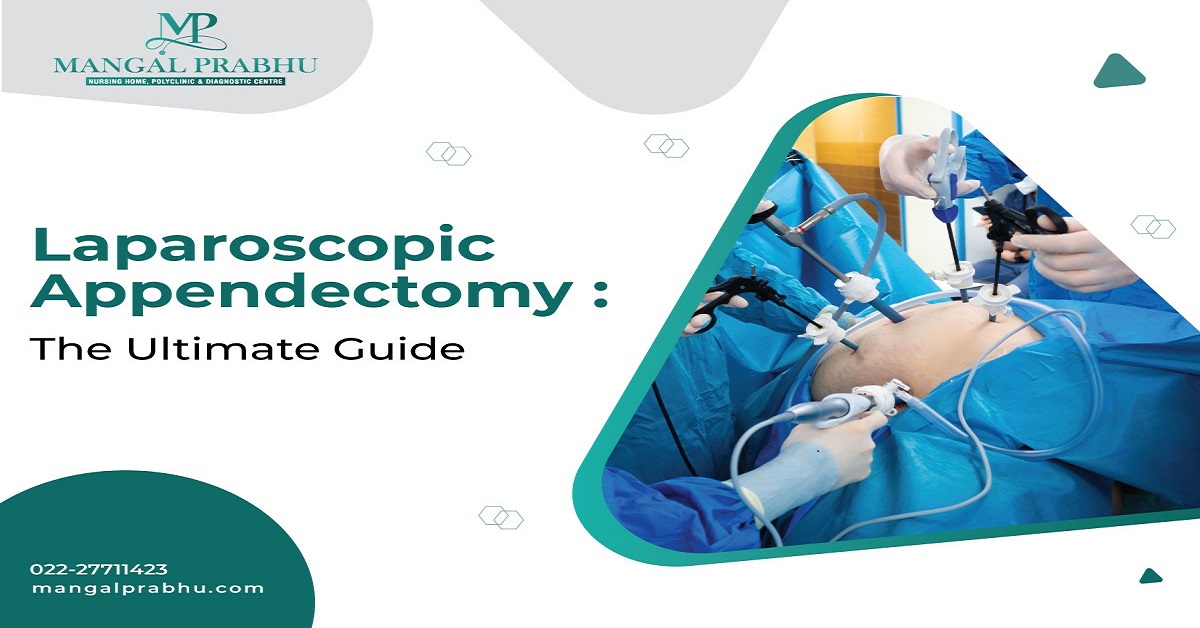
Laparoscopic Appendectomy: The Ultimate Guide
Laparoscopic appendectomy is an invasive surgical procedure that is administered in order to remove the appendix, a small pouch-shaped organ situated in the lower right side of the abdomen. This type of surgery is performed with the help of a laparoscope, a long, thin, flexible tube with a light and camera attached to the end.
During the process of laparoscopic appendectomy, the surgeon makes several small incisions in the abdomen and inserts the laparoscope and other surgical instruments through the incisions. The laparoscope allows the surgeon to see inside the abdomen and locate the appendix, which is then removed through one of the incisions. Like any other surgical procedure, a laparoscopic appendectomy also comes with certain important information or guidelines. Let’s examine what they are.
According to a laparoscopic surgeon in Navi Mumbai, it is vital to remember that based on the patient’s situation and the doctor’s inclinations as well as expertise, the laparoscopic appendectomy parameters can change. To examine the possibilities and decide which course of action is appropriate for their individual condition, patients should speak with their surgeon.
General recommendations for laparoscopic appendectomy include the following:
1. Patient Selection:
A laparoscopic appendectomy is usually an effective option for individuals with benign appendicitis who do not have significant medical complications and have not experienced any previous abdominal surgeries. An open appendectomy, however, might be essential for people who have serious or complicated appendicitis or other medical problems that raise the risk of surgery.
2. Preoperative Preparation:
According to the information gathered from a Laparoscopic Appendectomy Hospital in Navi Mumbai, patients should avoid eating or drinking for several hours before surgery. They should also inform their surgeon of any medications they are taking and follow any other preoperative instructions provided by the surgical team.
3. Anaesthesia:
A general anesthetic is administered during laparoscopic appendectomy.
4. Surgical Method:
A laparoscopic appendectomy involves a number of small abdominal incisions where the surgeon installs a laparoscope and other surgical instruments in order to remove the appendix. Normally, the process takes between 30 and 60 minutes to complete.
5. Postoperative Care:
Following a laparoscopic appendectomy, patients typically stay in the hospital for one to two days before being released once they are capable of walking, tolerate food, and have no fever. Within a week or two, they are usually able to resume their regular activities.
6. Potential Complications:
Such a technique has a chance of developing complications such as bleeding, infection, harm to nearby organs, and anesthesia reaction. Patients should notify the doctor instantly in such situations.
Also Read: A COMPREHENSIVE GUIDE TO GALLBLADDER STONE REMOVAL
Some advantages of laparoscopic appendectomy versus open appendectomy include:
1. Less Pain:
Less pain is experienced by patients following surgery because laparoscopic appendectomy is less aggressive than open appendectomy.
2. Minor Incisions:
Patients typically have smaller scarring after a laparoscopic appendectomy than they would following an open appendectomy because the procedure only calls for minor incisions.
3. Shorter Stay In Hospital:
Because laparoscopic appendectomy is typically done as an outpatient surgery, patients could either go home the same day as their surgery or only need a brief hospital stay.
4. Quicker Recovery:
Patients can resume normal activities relatively sooner after a laparoscopic appendectomy than that after an open appendectomy.
5. Reduced Risk of Infection:
The risk of infection and other consequences is lower with laparoscopic appendectomy.
6. Improved Aesthetic Results:
Compared to the bigger incisions used in conventional appendectomy, the small incisions for use during laparoscopic appendectomy are generally less noticeable.
Conclusion:
Overall, laparoscopic appendectomy is a critical procedure for treating appendicitis, a frequent ailment that, when left untreated, may result in catastrophic complications. Laparoscopic appendectomy offers the potential to enhance patient outcomes and save healthcare costs by enabling a speedier and less intrusive procedure.
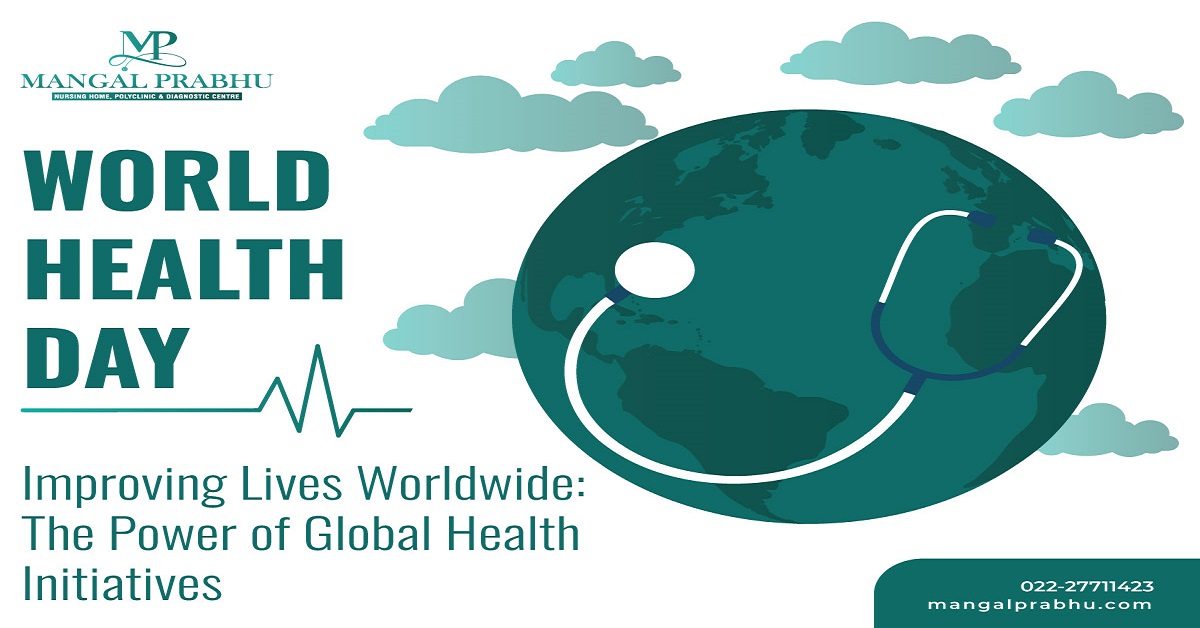
Global Health Initiatives Improving Health Around the Globe
Global Health Initiatives are developed with the purpose of making healthcare services accessible to all parts of the world, especially developing nations. This program covers funding for certain ailments, like AIDS, immune diseases, tuberculosis, malaria, etc.
The initiative is changing thousands of lives by making healthcare financially feasible for all families in developing countries, especially ones that are not in a condition to pay their medical bills. It’s a collaboration of different stakeholders around the world to disburse funds to financially-weak economies, among middle and low-income groups.
Types of Global Health Initiatives
An example includes Cervical Cancer Elimination Initiative. It’s achieved by ensuring that 90% of the girls aged 15 years or above are vaccinated. They must be tested for cervical cancer at the age of 35 years and 45 years.
Another example is the Decade of Healthy Aging, which focuses on long-term care for elder citizens. Through this program, WHO aims to provide elders with age-friendly environments and the financial support they need for mental and physical fitness.
Introduced in 2018, the Global Initiative for Childhood Cancer is another famous Global Health Initiative designed to increase the survival rate of children diagnosed with cancer to 60% and improve their quality of life. Through this Initiative, WHO plans on improving the developing nation’s ability to provide children with access to the healthcare system and advanced medical care.
Also Read: 5 FACTORS TO CONSIDER WHILE CHOOSING A RIGHT MULTISPECIALTY HOSPITAL
Challenges of Global Health Initiatives
In the last two decades, we’ve seen significant development in global health initiatives and their impact on developing nations. But with the changes in political and financial landscapes, these initiatives might not prove effective. Despite WHO’s plan to make healthcare services accessible to all, some people from the rural and undeveloped sectors are still struggling with their health issues financially and physically.
Quality healthcare services is still a dream for many parents and children that can’t afford private medical facility. Besides that, the increasing number of global health issues, including noncommunicable diseases, environmental factors, and starvation are presenting new challenges. With these issues, organizations working for global health initiatives need to rethink their roles to contribute to the initiatives more effectively.
Benefits of Global Health Initiatives
Global Health Initiative is making people’s lives easier worldwide. It’s a great source of funding for those who can’t afford healthcare services. The plan covers children, adults, and elders diagnosed with a medical ailment or those at risk of developing a chronic condition.
It spreads awareness about preventable diseases and improves the quality of life of people undergoing treatment. The purpose of these initiatives is not just to provide better healthcare services to the people in developing nations, but to educate people and reduce the number of deaths from preventable diseases.
Final Thoughts
Global Health Initiatives are sponsored by WHO and the partnered organizations that aim to make healthcare available worldwide. While the political and financial challenges might make implementation challenging, these organizations come up with new ways to evolve and improve people’s lives positively.
